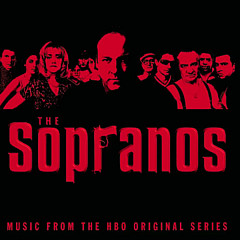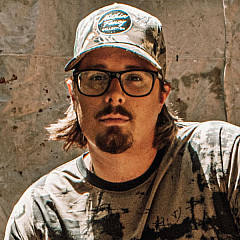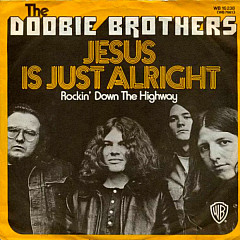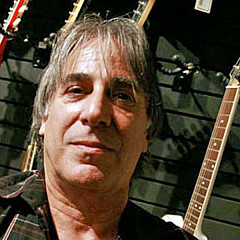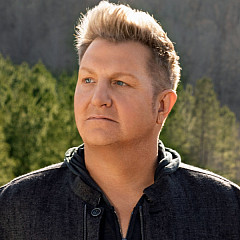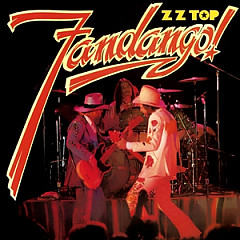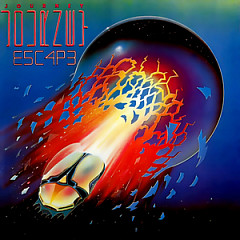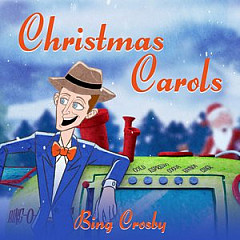
By the early '90s, Tom Douglas had settled into life as a successful commercial real estate broker, long after his hopes of becoming a hit songwriter were dashed during a failed stint in Nashville. Then he wrote "Little Rock."
"One gleaming Saturday morning at age 39, I sat down at an out of tune piano and opened up my black and white composition book and told the truth," he recalled. "I opened up a vein and bled on the page." The song about a recovering alcoholic looking for a fresh start in an Arkansas town was a #2 hit for Collin Raye, and set Tom on a hot streak that's lasted for over two decades. From Martina McBride's "Love's the Only House" to Tim McGraw's "Grown Men Don't Cry" to Miranda Lambert's "The House That Built Me," Tom co-wrote a catalog of country hits that earned him entry into the Nashville Songwriters Hall of Fame in 2014.
We spoke with Tom about his sensitive approach to songwriting, how the smallest moments capture the biggest truths, and why it took seven years to write "The House That Built Me."
Tom Douglas: Okay.
Songfacts: Collin Raye said he was uncertain about "Little Rock" because it was darker than a lot of the country songs that were out at the time. Were you surprised when that one became a hit?
The song's a reaction to what was going on in my life at the time. Now looking back I can certainly see why he would say that. Because if you go back and you listen to what was popular in 1993/1994, it was certainly a departure from what was being played on the radio. Yeah, I get that.
Songfacts: He made a point, though, that it's also a hopeful song.
Douglas: Yeah. It's all about redemption to me. It's redeeming a guy that is broken and he's healed. It's almost like a prodigal child trying to get back home. You know, a guy starting over. It hopefully is a very redemptive song, but like any good story, it's got to have a tension point to have a crisis so he can be redeemed.
Songfacts: Did you toy around with any other settings before you landed on Little Rock?
Douglas: No, I really didn't. I drew that whole thing from personal experience. I was in the real estate business, so I was working with Walmart Stores at the time [the song's protagonist works at a Walmart], and Bill Clinton [who was born in Arkansas] was running for president. I felt like I was starting over, just like the guy in the song.
It was a convenient way for me to tell a story. I guess I was looking for a way to reveal something about myself, so it was more of a cathartic experience rather than thinking about the radio. I wasn't thinking about trying to write a song that somebody could record. I was just trying to validate and explain what was happening to me and was happening in the culture at the same time.
Songfacts: You wrote that one solo, but you've gone on to have some really rich songwriting partnerships, particularly with Allen Shamblin. What do you look for in a co-writer?
Douglas: Well, it starts with friendship first, and respect. I've got to really love the songs from whomever I'm collaborating with. I'm looking for inspiration, so I want to be inspired by the person that's in the room.
Songfacts: Allen said there's almost a third voice that emerges when two songwriters work together.
Douglas: Yeah. I think that's true. I've heard Allen say that. That's very insightful. It's the convergence of what those two voices become, and any collaboration is going to be unique. What I write with Allen is going to be completely different than what I write with Jaren Johnston. That's a great way to explain collaboration. One and one makes three.
Songfacts: Jimmy Webb was a major idol of yours. What is it that you admire about his work and how does that inform your own songwriting?
Douglas: I was very young when I fell in love with the songs that Jimmy Webb wrote, although I didn't really know that he was the songwriter. But the songs for Glen Campbell, "Galveston," "Wichita Lineman ," "By The Time I Get To Phoenix," I just loved the rich narrative, the details. He creates a setting and a scene. There's always a tension point.
He's really a piano player, so his melodies are always so evocative. Even before I knew it was Jimmy Webb, I just loved everything about his songs and continue to be inspired by him even today.
Songfacts: Did you actively study songwriting structure?
Douglas: I did not, no. I'm sure I absorbed some of the formal aspects of verse, chorus, bridge, length of song, construction, through years and years of looking at songs. But it was all very informal. Of course, back 20 or 30 years ago, there wasn't this cottage industry of songwriting that is now grown up around us. There's a million resources available today that just weren't available then. So in a sense, you just had to figure it out by listening and studying and reconstructing songs that you loved.
Songfacts: I've read that it took "The House That Built Me" seven years to write. Did it get thrown on the back burner or were you consistently working on that over the years?
As soon as he said that, the hair on the back of my neck stood up and the red lights flashed and I said, "Allen, you've got to promise me you'll never utter those words to anybody but me until we get back to Nashville."
We got back together probably a week or so after we returned from out of town, and we sat down and thought about the song and wrote a version of it and really loved it. We demoed it and turned it in, and the publisher's response was, "Yeah, that's cool" - code words meaning they'll never listen to it again.
Then you move on. But it's one of those ideas, and I've had those ideas through the years that really haunt me, that just won't let me go. Allen and I got together periodically over the course of those seven years and we'd talk about it and take another look at it. Finally, literally about seven years in, I called Allen and I said, "I just know that there's an idea here that's waiting to be revealed. I just haven't quite gotten it." We got together again, put the lyrics on a comp tape and started at the top and worked our way down.
By that time we'd had enough experience to see that we needed to make the song a lot simpler. We had too much information, so the song became simpler and simpler over time. It was at the very end that we found the line that preceded the hook, "If I could just come in, I swear I'll leave, won't take nothing but a memory." We didn't have that line until the very end. Once we found that, everything else locked into place.
Songfacts: It's interesting, because when you started writing the song, Miranda Lambert was just starting out, and by the time you finished it, she was a star. Did you guys have any artists in mind over the years to sing it?
Douglas: No, we wouldn't have thought of Miranda in a million years. But fortunately the song got on hold for Blake Shelton, and Blake was in a relationship with Miranda at the time. They were in Blake's truck listening to songs that Scott Hendricks, Blake's producer, had sent him, and "The House That Built Me" was one of the songs on the comp tape. She just fortuitously was in the truck and heard the song and started crying. He said, "What's wrong?" And she said, "That's my story." He said, "Well, if that's your story, maybe that's your song." So miraculously, all those facts came together and she did it.
Songs have a mind of their own and a time of their own. It's really fate. You just have to believe that songs will get to the right person at the right time and that certainly was the case with that one.
Douglas: Well, Allen and I have written 45 songs together. We were looking at our songs and realized that there's a loose narrative that weaves throughout the songs. The first one really is "The House That Built Me," and it's about the parable of the prodigal child who runs away from home and creates a new identity in life for himself, only to get lost out there in the world and has to find his way back home. That was the first step. You've got to come back home first to remember where you're from and remember who you are.
Then from that I think "Good Man Gone Bad" was the next step in that series. He realizes who he is and what's happening around him in the song that was part of the Shatter the Madness series.
It just seemed logical at the time that "The House That Built Me" is the first step. It's the same character, really, in all four of those songs. You almost look at it like a short story, like it's the same guy in "The House That Built Me" that's in "Good Man Gone Bad" that's in "Legacy" that's in "Shatter the Madness." It's almost like chapters in the protagonist's life.
We probably didn't explain that very well, but that was the underlying premise in that project.
Songfacts: We spoke with Buzz Cason a while back, too, and he was saying that "Love's the Only House" lyrically started with the bit about the woman in the express lane at the grocery store. What do you remember about writing that one?
But the vignettes generally were there from the first time we started writing the song. But it became simpler and simpler over time, as well, especially the chorus in just those two lines that repeat, "Love's the only house biggest enough for all the pain in the world. Love's the only house," which is kind of a singer/songwriter device that Dylan uses and U2 uses and Springsteen.
Songfacts: I can't help but connect that one with "Grown Men Don't Cry" in a way, because they both deal with compassion and empathy. But "Grown Men Don't Cry" points to the frustration of not being able to do enough or not knowing the right thing to do.
Douglas: Yeah. That's a good point. Both those songs have the underlying message that really is a call to action that we've got to respond to what's happening around us. You can't just distract yourself or protect yourself from crises all around us. Hopefully when you get to the end of both of those songs, you just think to yourself, as the singer did, I've got to do something here, whether it be about a single mother who's having a baby, or a homeless woman and her little boy.
Most of my songs start as a reaction to something that's happened either personally or in the culture, such as the disconnection of teenagers in "Love's the Only House" and poverty and homelessness of "Grown Men Don't Cry." But all the songs hopefully have redemption in the end. I have to write that in every song, because I've got to remind myself of that.
Songfacts: Many Lady Antebellum fans interpret "I Run To You" as being about God's love rather than romantic love. Was that where you were coming from?
Douglas: Yeah, yeah. All these songs really - you know, "Love's the Only House" started with Jesus was the only house. They're all symbolic in a way where you could make almost all these songs worship songs if you substituted God or Jesus for love. So yeah, that's certainly in there. If love is expressed properly, it could be romantic love or spiritual love. It's just a different kind of the same thing.
Songfacts: There was one line in there that said, "When lies become the truth." Was that taken from a passage of scripture?
Douglas: I don't think literally. But certainly the basis of that is [scriptural]. It almost sounds like a proverb or something from Ecclesiastes. When fools become wise and lies become truth and black becomes white, when the creation tries to become the creator.
It's like all those wonderful paradoxes in scripture. You've got to lose your life to save it, the last shall be first. I like things like that. You certainly see that all around. I see the hypocrisy in myself and in the culture, and it's just reflected. I'm really not making a value judgment, I'm trying not to preach, but I am commenting almost more like a journalist, I hope. Nobody likes to be preached to, and I don't, either. I try not to do it, but I probably do more than I am aware of.
Traffic crawls
Cell phone calls
Talk radio screams at me
Through my tinted window I see
A little girl
Rust-red minivan
She's got chocolate on her face
Got little hands, and she waves at me
Yes, she smiles at me
Well, hello world
Douglas: Yeah. That was a real moment. That song was started by Tony Lane and David Lee. They had a song that they had started called "Hello Heart." They had part of a chorus, but it was a different title.
The themes in all these songs are very similar. You could take the scene in "Hello World" and you could put that in "Love's the Only House" or you could put that in "Grown Men Don't Cry." In songwriting, or any kind of writing, what you're trying to do is focus on small moments. Capture the smallest moment you can with the most intricate detail, and it gets bigger. If you try to write something really big because you think it's going to be more universal, it doesn't seem to work. You've got to take something really small. The smaller you get it, the more universal it seems to become.
I'm looking for those vignettes, those small scenes that kind of fit into a larger context.
Songfacts: I've noticed that a lot of your songs follow that theme of a legacy, whether being part of somebody else's legacy or creating your own. Does it just come out that way or is that something that you think about?
Douglas: I do think about it. It's probably a reaction to how fluid and how fractured the culture is. We're all disseminated all over the planet. There's a real positive upside to that, but the downside is you forget who you are and where you're from and to whom you belong. That's just the nature of technology, and with progress. It exacerbates our lostness to a degree.
A lot of these songs are in reaction to that feeling of how disconnected we are. We've never been more connected technologically and we've never been more isolated. That's the way it feels to me.
Songfacts: The last one I wanted to discuss is your Oscar-nominated song, "Coming Home," from Country Strong. How specific were the filmmakers on what they wanted? How much freedom did you have?
Douglas: We had the script and we met with the producer, the director and writer, so we really had a lot of information. I remember that part of the script was specific, it was like, "And here we need a song about coming home." I don't know if that literally was there, but I just remember it was, like, "Wow." That would be a cool song about coming home.
The great thing about movie scripts and writing for them, you have these built-in parameters that makes it so much easier to write. The music director would say, "We want something that's not a ballad, that's midtempo," and they give you real specificity when you're talking about a movie. It made it a lot easier. We still had to literally do it, but it was much easier.
The hard thing about writing songs is that you literally sit down and say, "Well, what do you want to write about today?" Could be a cloudy sky in Arkansas or it could be a dirt road and a purple sunset. All this freedom is paralyzing sometimes.
Songfacts: That's an interesting way to look at it. Because I've read the flip side, where some songwriters find it more difficult the more information they get or the more rules they have. But it's freeing for other people.
Douglas: Yeah. It just depends on perspective. But writing to a target some ways is really exciting, because you know exactly where you're going and you know if you hit it or you know if you don't.
January 5, 2017
Find more about Tom at tomdouglasmusic.com
More Songwriter Interviews

